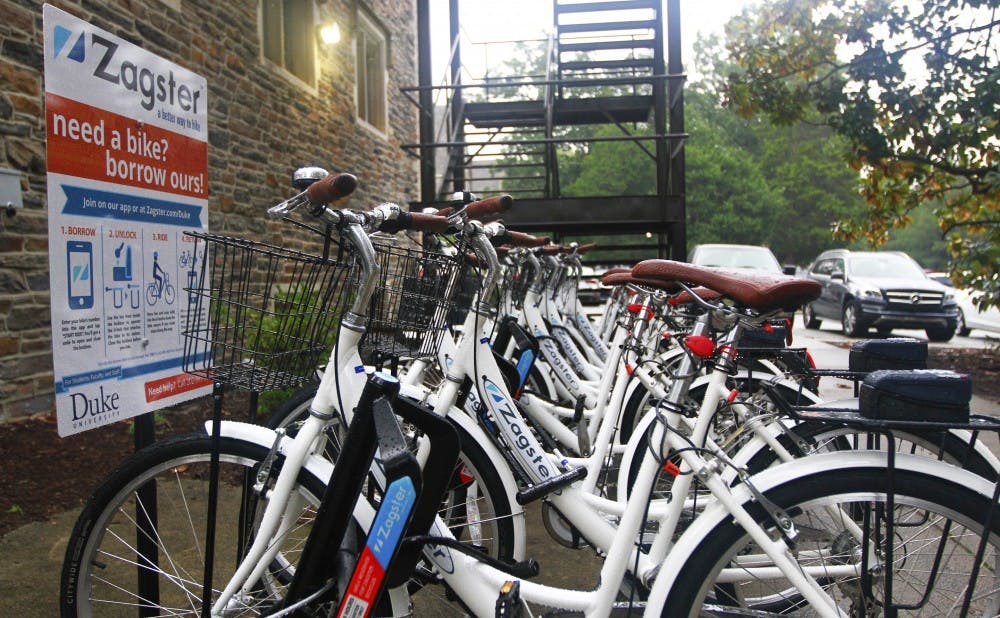After a year's hiatus, bike sharing is officially back on Duke's campus—albeit taking a different form than it once did.
The new bike borrowing program—which Duke Student Government President Lavanya Sunder, a junior, advocated for and helped develop—is run by Zagster, a national bike sharing company. The program kicked off Friday with a launch party on the Bryan Center Plaza, a little more than a year after Duke's previous bike sharing system was cancelled due to low participation. Timothy Ericson, the company's CEO and co-founder, said he felt Duke's program is off to a strong start.
"We’ve been very pleased with the response," Ericson said. "We had dozens of people sign up before we had even officially launched. Since last Friday we’ve had about 150 signups."
Zagster has a presence in several cities across the country, as well as at peer colleges such as Yale and Cornell Universities. Ericson noted that the program's implementation process is different at each school. He said that generally, his company looks at a university's goals and preexisting options to determine how many bikes to start with, and where on campus they should be placed.
At Duke, there are currently 50 bikes set up at four different locations—one at the East Campus bus stop, one at the Central Campus bus stop near Devil's Bistro and two on West Campus, one between the Social Sciences and Allen buildings and one by Penn Pavilion.
Ericson said Zagster will monitor bike use and make any adjustments to the program as needed. The company will continue to work with DSG and the administration to promote awareness about the bike service, he added.
"It’s hard to predict participation at this early stage," Ericson said. "We’ll know more in the coming weeks as people start using the bikes. One of the best ways to drive awareness is simply people riding the bikes."
Students interested in registering for the bike program can do so on the Zagster website or a mobile app. They will be charged an annual $20 membership fee that will cover the first three hours of any ride. Each hour beyond that will cost $2, which will be pulled from a separate account that students can set up. The money can be refunded if it is not used.
The previous bike sharing system, known as the Duke Bikes Program, was canceled in August 2013. Originally housed in West Union, the program was moved to the Arts Annex to accommodate the current renovations to the Union. After relocating, the program's popularity decreased, and University Center Activities and Events decided to stop funding the program.
The cost of implementing Zagster is estimated to be approximately $60,000. Funding comes from a number of administrators—including Vice President of Administration Kyle Cavanaugh, former provost Peter Lange, Vice President of Student Affairs Larry Moneta and Executive Vice President Tallman Trask—as well as a contribution from DSG.
Get The Chronicle straight to your inbox
Signup for our weekly newsletter. Cancel at any time.

